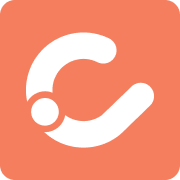Companies striving for excellence must adhere to nothing but the best workplace practices. It goes without saying that successful organizations must implement an effective time management system.
Having said that, you may wonder what is time management system & what does it do? Also, what benefits do you get from implementing a great time management system in your company so you never have to look back?
We are going to discuss all about that in today’s blog; stay tuned!
But first things first-
What Is A Time Management System?
A time management system is a software tool designed to track and manage employee hours, attendance, and activities within an organization. In addition to monitoring work hours and break times, these systems also record PTO and generate insightful reports.
The software can be standalone or can be part of a Human Resource Information System (HRIS), which provides multiple people management features.
A good time management system will give you a clear picture of employee productivity and performance. In the process enabling you to make better decisions and use your resources more efficiently.
Read More: Human Resource Management Vs. Personnel Management
What Does A Time Management System Do?
In a typical Human Resource Information System (HRIS), the time management system is crucial in automating and streamlining various aspects of time and attendance tracking.
Here are the key aspects that a time management system takes care of for you-
Employee Time Tracking
Your staff can clock in and out using the time-tracking software. Depending on the software you are using, various methods, such as biometric scanners, mobile apps, web-based portals, etc. can be used.
This data is then recorded and stored electronically. Opting for this method saves you the hassle of manual timekeeping, and accuracy is guaranteed.
Attendance Management
The time management system captures attendance data in real-time, tracking employee arrivals, departures, and breaks. It automatically calculates total hours worked, including regular hours and overtime.
Leave Management
Employees can request time off directly through the HRIS, specifying the type of leave (e.g., vacation, sick leave, or personal time). Managers receive notifications of these requests, which they can approve or deny within the system.
Shift Scheduling
Managing employee schedules is made easier with a time management system that includes scheduling functionality. It allows employees to view their schedules and receive alerts about upcoming shifts.
To put the idea into perspective, here is what you can expect from a time management system to get done in your company at a glance-
- Your staff can clock in and out using digital time clocks/mobile apps/web portals.
- After that, attendance data is recorded and stored securely in the system.
- You can review and approve time-off requests with just a click through a good time management system.
- Automated alerts within the system can keep everyone in the loop about upcoming shifts, events, and leaves.
- A summarized view found within the system can quickly provide valuable insights into your workforce productivity and attendance trends.
Almost every time management feature discussed can be customized with advanced HRIS software. If you are considering one for your business, make sure you look for the perks mentioned above.
Benefits Of Time Management System
So, how exactly do they work their magic in the realm of Human Resources (HR)? Let’s break it down.
Simplifies All The HR Tasks
For management or HR professionals drowning in paperwork and spreadsheets, time management systems are a godsend. They automate tedious tasks like attendance tracking, leave management, and shift scheduling.
While all of the data are assorted in a single digital hub, it’s easy to spot trends and make necessary adjustments.
Boosts Productivity
According to a survey conducted by Timewatch, 91% of the participants indicate that enhanced time management reduces stress, while 90% link it to heightened productivity.
We support the implementation of time management systems, and statistics back it up. A good time management system increases productivity and improves work-life balance like nothing else.
Empowers Individuals
These software are not exclusive to HR; they are for everyone in the organization. By giving your employees access to their own time data and insights, these systems promote transparency and accountability.
Also, planning urgent tasks and time off becomes streamlined for each and every team.
Why Should You Care?
Well, besides the obvious benefits of saving time and boosting productivity, time management systems also help organizations stay compliant with labor laws and regulations.
Plus, they lay the groundwork for strategic workforce planning and resource allocation. It’s a win-win for everyone involved!
Final Verdict
Whether you are an HR professional or someone who’s trying to stay organized and on top of their game, time management systems can offer you tremendous benefits. With the right system in place, you can maximize your productivity, reduce stress, and improve focus.
We hope to have answered your burning question of what is a time management system & what does it do.
Until next time, stay productive and keep on clocking those wins!


